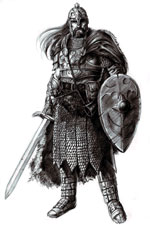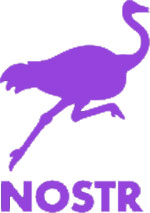
 November 2024
November 2024
Nov Learning: Archetype, Game Theory, Starting with A.I.
Learning in Snippets
Whenever I get curious, I look it up and learn it beyond its dictionary meaning. I don't go too deep, but enough to talk about it. AI is indispensable in this way. For November, I learned Archetype,

Starting with A.I. - Where? How?
From all the A.I. podcasts I've listened to, the career advice I keep hearing is to study AI as other career paths could be rendered obsolete. Others say don't study coding, but coders are saying it's important to know Python Programming so you can take control of the API. I get this 'control' thing. Because I know HTML, I can take full control of a website down to its last pixel. I asked AI how to get started in AI progressive immersion.
- Start with the basics - what is AI (definition, history, types [narrow, general AI, superintelligence])? Learn the basic concepts (deep learning, machine learning, statistics, data science). FREE online resource: Coursera's free AI For Everyone course by Andrew Ng and Elements of AI (University of Helsinki) - a beginner-friendly introduction to AI concepts. Covers both technical and non-technical aspects. Artificial Intelligence: A Guide to Intelligent Systems by Michael Negnevitsky
- Learn Programming - learn Python (most widely used in AI), explore libraries (NumPy, pandas, and TensorFlow/PyTorch). Python Programming - Automate the Boring Stuff with Python (Python basics, practical for beginners), CS50’s Introduction to Programming with Python (edX)
- Learn the Math - Linear Algebra: (Matrices and vectors), Probability and Statistics (predictions and understanding data), Calculus (optimization in ML models). Linear Algebra and Calculus - Khan Academy (Courses on linear algebra, probability, and calculus), 3Blue1Brown YouTube Channel (Visual explanations of mathematical concepts)
- Understand Machine Learning - learn the types of ML (supervised, unsupervised, and reinforcement learning), understand concepts (Regression, classification, clustering. Neural networks, decision trees), tools like scikit-learn can help you get started practically. Machine Learning by Andrew Ng (Coursera, covers supervised and unsupervised learning), Google’s Machine Learning Crash Course (for developers, practical coding exercises with TensorFlow), practice projects with Kaggle
- Dive into Deep Learning - understand neural networks and how they are built. Work on practical tools like TensorFlow and PyTorch. FREE recommended reading: "Deep Learning" by Ian Goodfellow. Deep Learning by Ian Goodfellow, overview of AI concepts, business applications, and societal impact. No prior knowledge required
- Practice Projects - implement basic projects like spam detection, image recognition, or chatbot creation. Participate in AI competitions on platforms like Kaggle.
Future advanced learning:
- Natural Language Processing (NLP) - learn about models like GPT (used for conversational AI)
- Computer Vision - study how machines interpret visual data (image recognition, object detection)
- Reinforcement Learning - useful in robotics, gaming, and decision-making systems
- Ethics and Fairness in AI - as AI impacts society, understanding its ethical dimensions will be crucial
- AI and Big Data Integration - explore how to process large datasets for AI models
- AI in Emerging Fields - areas like healthcare, autonomous systems, or financial modeling
Game Theory
Game Theory is a theory involving Math and Economics to study strategic thinking between competing parties who are rational decision-makers. Think of it as a Case Study. Parties know that the game outcome is not all about their decision alone, but how the other party decides as well - eg. chess, corporate hostile takeover, politics, economy and just about everything involving more than one player. The players study the various 'plays' available and how the other party might respond. Winner gets the payoff. The play can be zero-sum (one's win is the other's loss) or cooperative (allies cooperate on a strategy).
Market share: if you want to increase market share, you can lower down prices. But that alone doesn't guarantee anything. You have to predict what competition will do and study possible outcomes.
Counter-intuitive strategies: by making a small concession today, you might make bigger gains in the future
Predicting rational counter-moves: not everyone makes impulsive decisions. What's the rational thing this guy will do next? This is helpful in high-stakes game like hostile corporate takeover.
Famous Game Theory Concepts
- Nash equilibrium - the party who unilaterally changes his strategy while the other remains as is, loses the payoff.
e.g. Man wants to go to the ballgame, woman wants to go to a restaurant. Both want to be together. If man changes, then he has to go to the restaurant with girl - girl wins. - Prisoner's dilemma - a rational player refuses to cooperate even if it's in his interest to do so
e.g. 2 criminals are arrested. If both stay silent, they get a mild sentence. If one betrays the other, the betrayer goes home and the betrayed rots in jail. If both betray each other, they get longer sentences. The best strategy is to betray but no one does that - because they both get a longer sentence - Dominant strategy - the best move regardless what other players do. Essentially, it's the only move and you have no choice
- Zero-sum game - one's win is the other's loss
e.g. chess has only 1 winner and 1 loser, no middle ground - Ultimate game - one player proposes to split the resources. If the other refuses, no one gets anything
e.g. Your friend knows of a job paying P1000 but he needs a partner and chooses you. But he only wants to pay you P400 while he gets P600. Best strategy is to accept the P400 (or you get nothing) but it's unfair so you refuse. No one gets anything because your friend cannot do the job alone. Sometimes, people will walk away from money if there is unfairness. - Stag hunt - a choice between safety and cooperation
e.g. John wants to go stag hunting with you (bigger game but needs 2 people, no guarantees). You'd rather hunt rabbits yourself (small game but assurance of a payoff). Stag hunt fails because John needs a partner - Chicken game - aggression vs concession
e.g. 2 drivers playing chicken. If one swerves, the non-swerve wins. If both swerve, it's a draw. If none swerves, both die
Question:
Game Theory seems self-evident and self-explanatory. Why even bother to formalize it with a theory? How does knowing Game Theory help if you want to launch a corporate hostile takeover?
Answer:
Yes, in a simple situation, the dynamics are self-evident and self-explanatory. But in complex situations, there are many variables, many subtle dynamics, many players, multiple possible outcomes, many conflicting interests, and things could be confusing. Game Theory provides a structure to see things objectively, predict behaviors, reduce uncertainty, study the situation and come up with the best strategy. Game Theory breaks down components (players, payoff, strategies)
Game Theory in a Hostile Corporate Takeover
AAA wants to take over BBB without the board's consent. AAA has to know the landscape - players, strategic moves by BBB. Imagine this situation as a chess game - you figure out your move and figure out what the opponent's move is, and how you can counter it. You can think several moves in advance to stay a step ahead of competition.
PLAYERS
AAA - wants to buy BBB at the lowest possible costBBB board - blocks the bid to maintain control
BBB shareholders - examines offer and prospects of new management. They are not loyal to the BBB board.
Competitors/regulators - may intervene
STRATEGIC SCENE
Tender offer - AAA figures out how much it wants to spend for the bid and determines offer priceDefense - BBB might take the poison pill (issuing more shares to dilute what is outstanding and make the takeover costlier), find a white knight (find a friendly buyer who might decide to keep the current board)
SIGNALLING AND CREDIBILITY
BBB - might bluff and counteroffer with a much higher price, may give false or indeterminate information (like Twitter did not disclose how many bot accounts it actually had)AAA - can pre-commit to financing to ensure to everyone there is financing (like Elon committing that financing was already secured with the Saudis - this angered the Saudis and canceled the deal)
MULTI-STAGE NEGOTIATIONS
Both parties will go back and forth in negotiations. AAA can constantly evaluate their position to keep their exposure low while ensuring success in the acquisitionReal-world case study:
Kraft's hostile takeover of Cadbury (2010)
Kraft applied Game Theory to evaluate the situation and calculate its strategic moves. It first determined how much premium to offer the shareholders, the risk of rivals making a higher bid, Cadbury's defensive moves, public relations required to placate the public and shareholders. Kraft was successful taking control. It paid a little higher but still within its limits.
Archetype
I keep hearing the word archetype when I listen to intellectual podcasts. I have an idea, but not a firm grasp, leaving me with low confidence in using the word. Time to ask ChatGPT.
Archetype is a recurring symbol, character or theme that serves as a template for the human experience, myth, legend, storytelling and culture. It is timeless across history and universal across all cultures. It can also be symbolic or a metaphor of something deeper. In Lord of the Rings, the ring was the archetype for anything that is intensely corrosive that it can corrupt the most upstanding character, eg politics. In literature, the typical archetypes are the hero, the villain, the mentor, and the quest. The 'dragon slayer' is an archetype of a hero. A hero's journey is an archetype of a storytelling theme. In daily life, we can also say, "Elon Musk is the archetype of GenX who has agency and innovates in defiance of convention."
Ending Thoughts
The world is changing fast and with this change comes treasure troves of new knowledge and new ways of doing things. Learning these things are not only fun, but it empowers you to adapt into the major shifts in society. As one guru teacher once said, "Adapt or perish".
--- Gigit (TheLoneRider)
YOGA by Gigit ![]() |
Learn English
|
Learn English ![]() |
Travel like a Nomad
|
Travel like a Nomad ![]() |
Donation Bank
|
Donation Bank ![]()
Leave a comment?
Next story: [an error occurred while processing this directive]
»» back to Learning
»» back to Homepage
ARCHIVE 2025:
JAN |
FEB |
MAR
1970 |
1973 |
1975 |
1976 |
1977 |
1979 |
1981 |
1996 |
2000 |
2001 |
2002 |
2003 |
2004 |
2005 |
2006 |
2007 |
2008 |
2009 |
2010 |
2011 |
2012 |
2013 |
2014 |
2015 |
2016 |
2017 |
2018 |
2019 |
2020 |
2021 |
2022 |
2023 |
2024 |
2025 |
ALL BLOGS






